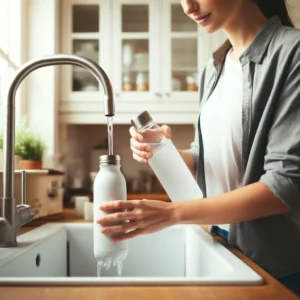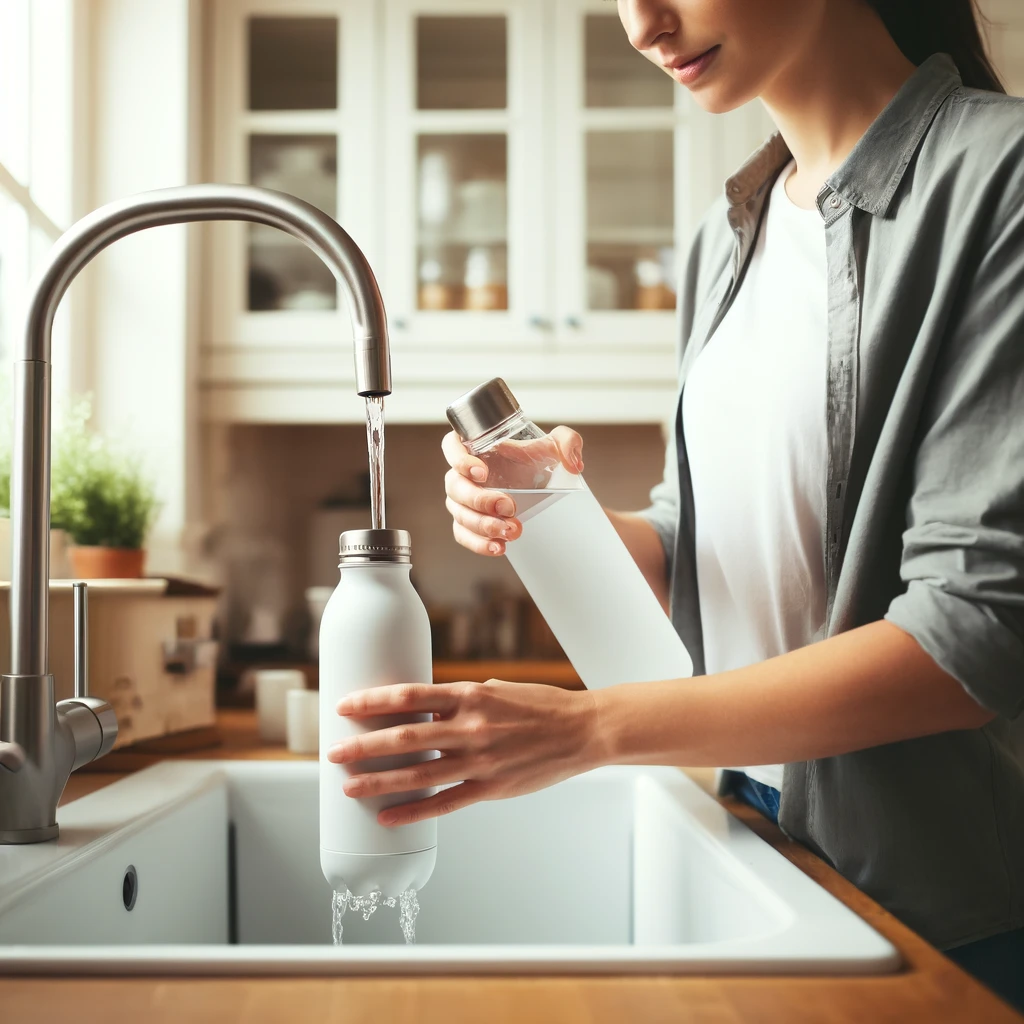
The Best Ways to Stay Hydrated Throughout the Day
Understanding Hydration: Why Water is Key to Health
Water is vital for life, playing a critical role in numerous bodily functions and overall health. Understanding the importance of hydration, how much water you need, signs of dehydration, and its effects can help you maintain optimal health and well-being.
The Role of Water in the Body: Essential Functions
Water is essential for several physiological processes and bodily functions including:
- Temperature Regulation: Water helps maintain body temperature through sweating and respiration.
- Transportation of Nutrients and Oxygen: It is crucial for the transportation of nutrients and oxygen to cells throughout the body.
- Waste Removal: Water helps remove waste products from the body through urination, perspiration, and bowel movements.
- Lubrication: It lubricates joints, aiding in movement and reducing friction.
- Digestive Processes: Water is essential for proper digestion, helping dissolve nutrients and minerals to make them accessible to the body.
How Much Water Do You Need?
The amount of water needed can vary significantly based on factors such as age, weight, climate, physical activity level, and overall health. A general guideline from the U.S. National Academies of Sciences, Engineering, and Medicine suggests:
- Men: About 3.7 liters (125 ounces) daily, including all beverages and food.
- Women: About 2.7 liters (91 ounces) daily, including all beverages and food.
Approximately 20% of our daily water intake comes from food, with the rest supplied by drinking water and other beverages.
Signs of Dehydration to Watch Out For
Recognizing the signs of dehydration is crucial for preventing its adverse effects. Common symptoms include:
- Thirst: An obvious but sometimes overlooked indicator.
- Reduced Urination: Less frequent urination than usual, or dark yellow or amber-colored urine.
- Fatigue: Feeling unusually tired or lethargic.
- Dizziness or Light-headedness: Especially when standing up quickly.
- Dry Mouth, Lips, and Eyes: A lack of moisture in these areas.
- Headaches: Often caused by reduced blood volume due to dehydration.
The Impact of Dehydration on Physical and Mental Performance
Dehydration can have significant effects on both physical and mental performance:
- Physical Performance: Even mild dehydration can impair physical performance, reduce endurance, increase fatigue, and cause muscle cramps.
- Mental Performance: Dehydration can affect concentration, alertness, and short-term memory. It can also affect mood, increasing feelings of anxiety and irritability.
Hydration and Its Effect on Skin Health
Proper hydration is also crucial for maintaining skin health. Benefits include:
- Skin Elasticity: Adequate hydration helps maintain skin moisture, improving its elasticity and reducing the appearance of wrinkles.
- Skin Radiance: Hydrated skin appears more vibrant and healthy.
- Detoxification: Water helps flush toxins from the skin, potentially reducing the occurrence of acne and other skin problems.
Morning Hydration Habits to Start Your Day Right
Starting your day with effective hydration habits can significantly boost your energy levels, improve your cognitive function, and kick-start your metabolism. Here’s how incorporating specific hydration practices into your morning routine can set a positive tone for the day and support your overall health.
The Benefits of Drinking Water First Thing in the Morning
Hydrating first thing in the morning is crucial because it helps to rehydrate your body after a night’s sleep. Here are several benefits:
- Replenishes Fluids: Overnight, your body naturally uses water. Drinking water upon waking helps replenish these lost fluids.
- Boosts Metabolism: Consuming water first thing can increase your metabolic rate by up to 30% for about an hour, aiding digestion and weight management.
- Enhances Brain Function: Hydration is key to maintaining optimal brain activity; even mild dehydration can impair mood, memory, and concentration.
- Flushes Toxins: Overnight, your body repairs and rebalances itself. Drinking water first thing helps flush out toxins that have been processed during the night.
Lemon Water vs. Plain Water: Benefits and Preferences
While plain water is excellent for hydration, adding lemon can enhance the benefits:
- Lemon Water Benefits: Lemon is high in vitamin C, which can boost the immune system, improve skin quality, and add a refreshing taste that may make you more likely to drink more water.
- Digestive Health: Lemon water is often said to improve digestion and reduce inflammation.
- Personal Preference: The choice between lemon water and plain water often comes down to personal preference. If adding lemon helps you drink more water, it’s a beneficial choice.
Hydrating Breakfast Options
Incorporating hydrating foods into your breakfast can also help increase your fluid intake:
- Fruit: Many fruits are high in water content. Options like watermelon, strawberries, and oranges not only provide hydration but also essential vitamins and minerals.
- Smoothies: Combine your favorite hydrating fruits with yogurt or milk and a handful of spinach for a nutrient-rich, hydrating breakfast.
- Oatmeal: Cooked with milk or water, oatmeal is hydrating and also provides fiber which is beneficial for digestive health.
Planning Your Fluid Intake for the Morning
Here’s how you can plan to ensure adequate hydration:
- Start with a Large Glass of Water: Begin your day with at least 16 ounces (about 500 ml) of water to kick-start hydration.
- Before and After Breakfast: Drink a glass of water both before and after your breakfast to aid digestion and absorption.
- Carry a Water Bottle: Keep a water bottle handy throughout your morning to sip from; having water close by will remind you to continue hydrating.
The Importance of a Hydrating Morning Routine
A consistent morning hydration routine can improve physical health, enhance mental clarity, and establish a pattern that promotes long-term well-being. Here’s why it’s beneficial:
- Sets the Day’s Tone: Starting with hydration can encourage healthier choices throughout the day.
- Prevents Dehydration: Regular intake in the morning prevents dehydration symptoms before they start, especially important as you begin your day’s activities.
Hydrating Foods to Include in Your Diet
Hydration is crucial for maintaining overall health, and while drinking water is essential, consuming foods with high water content can also significantly contribute to your total fluid intake. These foods not only help hydrate but also provide vitamins, minerals, and other nutrients that benefit overall health. Here’s how to incorporate hydrating foods into your diet effectively.
Top Hydrating Foods to Boost Water Intake
Several foods are particularly high in water content and can help keep you hydrated:
- Cucumbers: Almost 96% water, they are perfect for hydration and can be eaten raw or added to salads.
- Celery: Contains 95% water, plus fiber and important minerals like potassium and vitamin K.
- Watermelon: Not only is it 92% water, but it also contains nutrients like vitamins A, B6, and C, plus antioxidants.
- Tomatoes: About 95% water, these are a great addition to salads, sandwiches, and many other dishes.
- Strawberries: Consists of about 91% water and provides a good dose of fiber and vitamin C.
Incorporating Fruits and Vegetables with High Water Content
Eating a variety of fruits and vegetables is a delicious way to increase your water intake:
- Add to Meals: Include fruits like oranges (which are about 87% water) and apples (about 85% water) in your breakfast or as a snack throughout the day.
- Make Salads: Combine different vegetables like lettuce (96% water), bell peppers (92% water), and radishes (95% water) for a hydrating and nutritious salad.
Salads, Smoothies, and Soups for Hydration
These meal options are not only hydrating but also nutritious:
- Salads: Use a base of leafy greens like spinach or iceberg lettuce and add other hydrating vegetables, fruits, and a light dressing.
- Smoothies: Blend hydrating fruits like berries, peaches (about 89% water), and cucumbers with yogurt or almond milk for a refreshing drink.
- Soups: Especially in cooler weather, soups can provide warmth and hydration. Use a broth base and add a variety of vegetables for a hydrating meal.
Snacks That Help Maintain Hydration Levels
Snacking on high-water-content foods can also help keep you hydrated:
- Yogurt: Especially high in water and also a good source of protein and calcium.
- Peaches and Pears: Both contain about 89% water and make for a juicy, hydrating snack.
- Carrot Sticks: These are not only crunchy and full of nutrients but also contain about 88% water.
Balancing Solid Food and Fluid Intake
While it’s important to drink fluids, eating water-rich foods can contribute significantly to your hydration needs:
- Monitor Your Intake: Pay attention to both the fluids you drink and the water content of the foods you eat.
- Listen to Your Body: Let thirst be a guide along with the color of your urine, which should be light yellow.
- Mix It Up: Keep your diet interesting by trying new fruits and vegetables, as well as different preparations like raw, steamed, or juiced options.
Water Alternatives for Hydration
While water is the best source of hydration, several alternatives can provide variety and additional health benefits. From herbal teas and natural juices to coconut water and plant milk, these options can be a valuable part of your hydration strategy. Here’s a guide to understanding the benefits and best choices among water alternatives.
Herbal Teas: Benefits and Varieties
Herbal teas are a great alternative to water for staying hydrated. They are caffeine-free and come in a variety of flavors, each offering unique health benefits:
- Chamomile Tea: Known for its calming effects, ideal for reducing stress or helping with sleep.
- Peppermint Tea: Excellent for digestion and has a refreshing flavor.
- Hibiscus Tea: Rich in Vitamin C and antioxidants, and can help lower blood pressure.
- Ginger Tea: Helps with digestion and is anti-inflammatory.
Since herbal teas are caffeine-free, they can be enjoyed throughout the day without the risk of dehydration that comes with caffeine.
Natural Juice vs. Store-Bought: What to Choose
When it comes to juices, opting for natural juice is typically healthier than store-bought options, which can contain added sugars and preservatives:
- Natural Juice: Freshly squeezed juice contains more vitamins and fewer additives. For hydration, watery fruits like watermelon or cucumber are excellent choices.
- Store-Bought Juice: Look for juices labeled “100% juice” with no added sugars. These can provide hydration and nutrients but be mindful of calorie content.
The Role of Coconut Water in Hydration
Coconut water is a popular hydration choice, especially for athletes, due to its electrolyte content:
- Electrolytes: Contains potassium, magnesium, sodium, and calcium, which are crucial for hydration and maintaining fluid balance.
- Low in Calories: It’s a lighter alternative to sports drinks, often lower in carbohydrates and calories.
How Dairy and Plant Milks Contribute to Hydration
Both dairy and plant-based milks can contribute significantly to your daily fluid intake:
- Dairy Milk: High in protein and calcium, dairy milk can aid hydration and provide essential nutrients.
- Plant Milk: Almond, soy, oat, and coconut milk are hydrating alternatives for those avoiding dairy. They often come fortified with calcium and vitamins D and B12.
Understanding the Hydration Benefits of Sports Drinks
Sports drinks can be beneficial for hydration under specific circumstances:
- Electrolyte Replacement: Useful for long-duration physical activities where sweating occurs, as they replace electrolytes lost in sweat.
- Energy Boost: Contains carbohydrates in the form of sugars, which can provide energy during extended exercise.
However, due to their high sugar content, sports drinks are generally not recommended for regular hydration needs outside of athletic activities.
Hydrating Strategies for the Workplace
Staying hydrated during work hours is crucial for maintaining productivity, focus, and overall health. The workplace often involves long periods of sitting, exposure to air conditioning, and busy schedules that can distract from regular water intake. Implementing effective hydrating strategies can help you maintain optimal hydration throughout the workday. Here are some practical tips and tricks to ensure you stay hydrated at work.
Keeping a Water Bottle at Your Desk: Tips and Tricks
- Choose the Right Bottle: Opt for a large, reusable water bottle that you like—considering materials like stainless steel or glass which maintain the freshness of water better than plastic.
- Set Volume Goals: Mark your bottle with time-oriented drinking goals (e.g., drink 200 ml every hour), which can serve as a visual reminder and motivator.
- Keep It Visible: Place your water bottle in a prominent spot on your desk to remind you to take regular sips throughout the day.
Hydration Apps and Reminders to Drink Water
- Use Apps: Apps like Daily Water Tracker Reminder, Hydro Coach, or Aqualert can help you keep track of your hydration levels and set reminders to drink water at regular intervals.
- Calendar Reminders: Set up periodic reminders on your work calendar or digital assistant to prompt you to drink water, especially if your day is filled with meetings and tasks.
Staying Hydrated in Air-Conditioned Environments
- Understand the Effects: Air conditioning can dry out the air and may lead to increased water loss from the skin. Recognizing this can help you consciously increase your water intake.
- Use a Humidifier: If possible, use a small desktop humidifier to maintain humidity levels around your workspace, which can help prevent dehydration.
Meetings and Water: Making Sure to Sip
- Bring Water to Meetings: Always take your water bottle to meetings. It can serve as a physical reminder to drink and help you stay hydrated during long sitting periods.
- Incorporate Hydration Breaks: If you lead meetings, incorporate short breaks specifically for hydration, especially in longer sessions.
The Link Between Hydration and Productivity
- Boosts Cognitive Functions: Adequate hydration can improve cognitive functions such as concentration, alertness, and memory capacity.
- Enhances Mood: Staying hydrated can also positively affect your mood, which is crucial for a productive work environment.
- Reduces Fatigue: Dehydration can lead to fatigue and lethargy. By staying hydrated, you can maintain energy levels and reduce the likelihood of the mid-afternoon slump.
Optimizing Hydration During Physical Activity
Maintaining optimal hydration before, during, and after physical activity is crucial for performance, recovery, and overall health. Proper hydration helps regulate body temperature, maintain joint lubrication, and transport nutrients to give you energy. Here’s how to effectively manage your hydration needs around workouts, including the use of electrolytes and sports drinks.
Pre-Exercise Hydration Strategies
- Hydrate Beforehand: Aim to drink about 17-20 ounces (approximately 500-600 ml) of water 2-3 hours before exercising to ensure you start well-hydrated.
- Monitor Urine Color: A light yellow color is generally an indicator of good hydration. Dark urine suggests you need more fluids.
- Don’t Overdo It: While it’s important to start hydrated, drinking too much can lead to discomfort and may necessitate frequent bathroom breaks.
The Importance of Hydrating During Workouts
- Regular Sips: During exercise, aim to drink about 7-10 ounces (about 200-300 ml) every 10-20 minutes to replace fluid lost through sweat.
- Adjust Based on Sweat Loss: If you’re exercising intensely or notice heavy sweat, you may need to increase your intake slightly to compensate for the additional fluid loss.
- Use of Water Bottles: Keep a water bottle handy during workouts for easy access.
Effective Post-Workout Rehydration
- Replenish Fluids: After exercising, aim to replace any fluid lost. An easy estimation is to drink about 16-24 ounces (around 500-700 ml) of water for every pound of body weight lost during the activity.
- Include Snacks: Eating a snack or meal with water content, like fruits or yogurt, can also help restore hydration levels and provide essential nutrients for muscle recovery.
Electrolytes and Sports Drinks: When Are They Necessary?
- Duration and Intensity: If you exercise for more than an hour, or in very intense or hot conditions, replacing electrolytes with a sports drink can be beneficial.
- Electrolyte Balance: Sports drinks can help replenish sodium, potassium, and other electrolytes lost through sweat, which maintain fluid balance and muscle function.
- Choose Wisely: Opt for sports drinks that contain carbohydrates (for energy) and electrolytes but are low in sugars and artificial additives.
Signs of Adequate Hydration for Athletes
- Steady Performance: Not experiencing significant drops in performance levels during workouts can indicate good hydration.
- Recovery Rate: Efficient recovery after exercise, without excessive fatigue, can also suggest effective hydration.
- Physical Signs: Regular, clear urination, and minimal cramps or headaches post-exercise are positive signs of adequate hydration.
Hydration for Children and Teens
Ensuring adequate hydration in children and teens is crucial for their overall health and well-being, especially considering their higher fluid turnover and active lifestyles. Proper hydration supports physical growth, and cognitive function, and can prevent dehydration-related health issues. Here’s how to manage and encourage hydration habits effectively for younger age groups.
Daily Water Intake Guidelines for Younger Age Groups
Hydration needs vary by age, activity level, and environmental conditions, but general guidelines from health authorities can help:
- Ages 4-8 years: Approximately 5 cups (1.2 liters) of water daily.
- Ages 9-13 years: About 7-8 cups (1.6-1.9 liters) for girls and 8 cups (1.9 liters) for boys daily.
- Ages 14-18 years: About 8-11 cups (1.9-2.6 liters) for girls and 11 cups (2.6 liters) for boys daily.
These recommendations include total water intake from all beverages and food.
Fun Ways to Encourage Kids to Drink More Water
Making hydration a fun part of children’s routines can encourage them to drink more water:
- Flavor the Water: Add slices of fruits like berries, lemon, or cucumber to naturally flavor the water, making it more appealing.
- Use Fun Cups or Straws: Allow children to pick out their colorful water bottles or cups decorated with their favorite characters.
- Set a Good Example: Show them that drinking water is part of a healthy lifestyle by doing it yourself.
- Reward Systems: Implement a reward system for meeting daily water intake goals, such as stickers or an extra bedtime story.
Hydration in Schools: What Parents Need to Know
Ensuring children stay hydrated throughout the school day is important:
- Access to Water: Ensure your child’s school provides adequate access to drinking water. Send them to school with a refillable water bottle.
- Educate About the Importance: Teach children why staying hydrated is important, especially at school where it can affect their concentration and physical performance.
- Encourage Drinking Water: Remind them to drink water before school, during lunch, and at breaks.
The Importance of Hydration for Active and Growing Bodies
For children who are physically active or play sports, hydration becomes even more critical:
- Before Sports: Encourage drinking water before they start playing.
- During Activities: Make sure they take breaks to drink during activities, especially on hot days.
- After Activities: Replenish fluids lost during exercise by drinking water post-activity.
Dehydration Risks for Children and How to Avoid Them
Children are particularly susceptible to dehydration due to their smaller body size and higher surface area-to-volume ratio. Here’s how to minimize risks:
- Recognize Signs: Teach them to recognize signs of dehydration, which can include dry mouth, tiredness, thirst, decreased urine output, and dark yellow urine.
- Monitor Fluid Loss: Pay extra attention to their hydration if they are ill, especially with conditions that cause vomiting or diarrhea, which can rapidly lead to dehydration.
- Adjust for Weather: Increase their fluid intake during hot weather, particularly if they’re engaged in physical activity.
Hydration Tips for Older Adults
Proper hydration is crucial for older adults, as the body’s ability to conserve water decreases with age, and the sense of thirst may not be as acute. Additionally, certain medications and health conditions can further complicate hydration. Ensuring adequate fluid intake is essential for maintaining health, preventing urinary tract infections, managing chronic illnesses, and enhancing overall quality of life. Here are some strategies to help seniors meet their special hydration needs.
Special Hydration Needs of Seniors
Older adults need to be particularly vigilant about hydration due to several age-related factors:
- Reduced Kidney Function: With age, kidney function declines, reducing the body’s ability to conserve water.
- Less Acute Sense of Thirst: Older adults may not feel thirsty until they are already dehydrated.
- Health Conditions: Conditions like diabetes or heart disease can increase the risk of dehydration.
Managing Hydration with Mobility Limitations
Mobility issues can make it challenging for seniors to access water regularly. Here are some practical tips:
- Keep Water Within Reach: Place water within easy reach of where seniors spend most of their time, such as next to their favorite chair or bedside.
- Use Lightweight Water Bottles or Cups: Opt for containers that are easy to handle, including those with handles or easy-grip surfaces.
- Encourage Sipping: Instead of drinking large amounts at once, encourage sipping small amounts throughout the day.
The Risk of Dehydration with Certain Medications
Many common medications for seniors, such as diuretics for high blood pressure or certain treatments for kidney conditions, increase the risk of dehydration.
- Medication Awareness: Be aware of the hydration implications of medications and discuss them with healthcare providers.
- Monitor Fluid Intake: Keep a daily log of fluid intake, especially if taking medications that affect kidney function or fluid balance.
Easy Access to Fluids: Setting Up Your Living Space
Arranging the living environment to promote hydration can significantly impact fluid intake:
- Strategically Place Fluids: Place pitchers of water in common areas, the bedroom, and other places where seniors spend time.
- Offer Variety: Provide different types of fluids, such as water, herbal teas, flavored water, or juices to make fluid intake more appealing.
- Consider Aesthetic and Appeal: Use clear pitchers and glasses to make the water level visible and more inviting.
Outreach and Assistance: Helping Seniors Stay Hydrated
Family, caregivers, and community networks play a crucial role in ensuring that seniors stay adequately hydrated:
- Regular Check-Ins: Regular visits or calls can remind and encourage elderly individuals to drink regularly.
- Educate on Hydration Signs: Educate seniors and their caregivers on the signs of dehydration and the importance of regular fluid intake.
- Support Independence: Equip seniors with tools and products that help them maintain their independence in managing hydration.
Seasonal Hydration: Adjusting Through the Year
Hydration needs can vary significantly throughout the year due to changes in climate, environmental conditions, and lifestyle. Understanding how to adjust your hydration strategies for different seasons is crucial for maintaining health and well-being. Here are tips for staying adequately hydrated regardless of the season or weather conditions.
Staying Hydrated During Hot Summer Months
- Increase Water Intake: The heat and increased activity levels in summer typically necessitate higher water consumption to compensate for greater fluid loss through sweat.
- Cool Beverages: Keep water and other hydrating beverages cool to encourage drinking and provide relief from the heat.
- Wear Appropriate Clothing: Opt for lightweight, breathable fabrics to help manage sweating and maintain body temperature.
Hydration Needs in Cold Weather
- Don’t Rely Solely on Thirst: Your sense of thirst might be less acute in colder weather, so it’s important to drink regularly even if you don’t feel thirsty.
- Warm Fluids: Drink warm liquids such as herbal teas or hot water with lemon to both keep you warm and encourage fluid intake.
- Moisturize Skin: Keeping your skin moisturized helps prevent dryness caused by harsh weather, which can be a reminder of the body’s overall need for hydration.
Holiday Celebrations and Maintaining Hydration
- Balance Alcoholic and Caffeinated Beverages: Both alcohol and caffeine can have diuretic effects. Balance these beverages with plenty of water, and opt for non-alcoholic and decaffeinated alternatives when possible.
- Stay Mindful of Liquid Calories: Holiday beverages can be high in calories and sugar. Opt for water or diluted juices to stay hydrated without overconsuming calories.
Adjustments for Climate and Environmental Factors
- High Altitudes: Water loss is faster at higher altitudes, so increase your water intake if you are skiing or hiking in mountainous areas.
- Humidity Levels: High humidity can prevent sweat from evaporating, which impairs your body’s ability to cool itself. Drink more water to aid internal temperature regulation.
Indoor Heating and Air Quality: Their Effects on Hydration
- Indoor Heating: Heating systems in winter can dry out the air indoors, which can in turn dry out your skin and mucous membranes. Use a humidifier to help maintain humidity levels and keep hydrated.
- Air Quality: Poor air quality and exposure to pollutants can increase respiratory fluid loss. Ensure good ventilation and increase your water intake when air quality is low to help clear pollutants from the body.
Tip for Year-Round Hydration: Regardless of the season, carrying a reusable water bottle can help you maintain hydration by making water easily accessible no matter where you are or what you’re doing.
Advanced Hydration Techniques
Staying hydrated is fundamental to maintaining health and optimizing physical performance, especially under varying environmental conditions and activity levels. As science and technology advance, so do the methods and products designed to enhance hydration efficiency. Here’s a look at some advanced hydration techniques, including hydration packs, tablets, and other innovations.
Understanding and Using Hydration Packs
Hydration packs are specialized backpacks designed to carry water and make drinking convenient and efficient, especially for athletes, hikers, and cyclists.
- Benefits: They allow for easy access to fluids without needing to stop or slow down, which is ideal during long endurance events or treks.
- Types: Hydration packs vary in size and design, some focusing on minimalism for runners, while others offer larger capacities and more features for hikers.
The Science Behind Hydration Tablets and Powders
Hydration tablets and powders are formulated to enhance water absorption and replenish electrolytes lost through sweat.
- Composition: These often contain a precise blend of sodium, potassium, magnesium, and sometimes caffeine, which can help maintain fluid balance, prevent dehydration, and boost energy levels.
- Usage: Ideal for pre-hydration before engaging in physical activity, sustaining hydration during prolonged sports, or recovering fluid and electrolyte levels post-exercise.
Personalized Hydration Needs Based on Lifestyle and Health
Hydration needs can vary widely depending on individual health status, activity level, diet, and environmental conditions.
- Assessment Tools: Wearable technology and smart devices can now monitor hydration levels, sometimes even offering personalized hydration strategies.
- Customization: Certain apps and devices allow users to input daily activity levels, environmental conditions, and health goals to calculate specific hydration needs.
Innovations in Hydration Technology
Emerging technologies continue to revolutionize how individuals monitor and adjust their hydration levels.
- Smart Water Bottles: Equipped with sensors, these bottles can track your fluid intake and sync with your smartphone to remind you to drink water through notifications.
- Hydration Sensors: Non-invasive sensors that monitor hydration levels in real time are currently in development. These could be game-changers for athletes, military personnel, or those in extreme conditions.
The Future of Hydration: Trends and Predictions
Looking ahead, the future of hydration technology appears promising with several trends potentially becoming mainstream.
- Edible Water Spheres: Innovations such as biodegradable blobs containing water could reduce plastic waste and provide hydration in convenient doses.
- Hydration at a Molecular Level: Research into how water is absorbed by our cells could lead to the development of more effective hydration methods, potentially altering what we drink and how we drink it.
- AI and Machine Learning: Advanced algorithms could predict individual hydration needs with high precision, considering real-time data from numerous sources for tailored hydration strategies.
Frequently Asked Questions for “The Best Ways to Stay Hydrated Throughout the Day”
1- Why is hydration important for health?
Hydration is crucial as water plays key roles in temperature regulation, nutrient transportation, waste removal, lubrication of joints, and digestion.
2- How much water should I drink each day?
General guidelines suggest about 3.7 liters for men and 2.7 liters for women per day, including all beverages and food, though individual needs can vary based on factors like climate and activity level.
3- What are the signs of dehydration?
Common signs include thirst, reduced urination, fatigue, dizziness, dry mouth, and headaches.
4- How does dehydration affect physical and mental performance?
Dehydration can impair endurance, muscle function, concentration, alertness, and mood.
5- What are the benefits of drinking water first thing in the morning?
Morning hydration replenishes fluids, boosts metabolism, enhances brain function, and helps flush out toxins.
6- Lemon water vs. plain water: which is better?
Lemon water can provide additional benefits like vitamin C and improved digestion, but the choice between lemon water and plain water often depends on personal preference.
7- What are some hydrating foods I should include in my diet?
Foods high in water content such as cucumbers, celery, watermelon, and strawberries are excellent for boosting hydration.
8- Are there alternatives to drinking water that can also keep me hydrated?
Yes, herbal teas, natural juices, coconut water, and milk are good alternatives that provide hydration along with other health benefits.
9- How can I stay hydrated at work?
Keeping a water bottle at your desk, using hydration apps, and consuming water-rich foods can help maintain hydration throughout the day.
10- What are some tips for hydrating in different seasons?
In summer, increase water intake and choose cool beverages. In winter, opt for warm fluids and don’t rely solely on thirst as cold weather can reduce its sensation.
Reference Links for Hydration Information
- Mayo Clinic – Water: How much should you drink every day?
- Harvard Health – The importance of staying hydrated
- CDC – Get the Facts: Drinking Water and Intake
- American Heart Association – Staying Hydrated – Staying Healthy
- Cleveland Clinic – Dehydration
- National Academies of Sciences, Engineering, and Medicine – Dietary Reference Intakes for Water
- U.S. Geological Survey – The Water in You: Water and the Human Body
- WebMD – Why Drink More Water? 6 Reasons to Drink Water
- MedlinePlus – Fluid and Electrolyte Balance
- Nutrition.org.uk – Hydration




